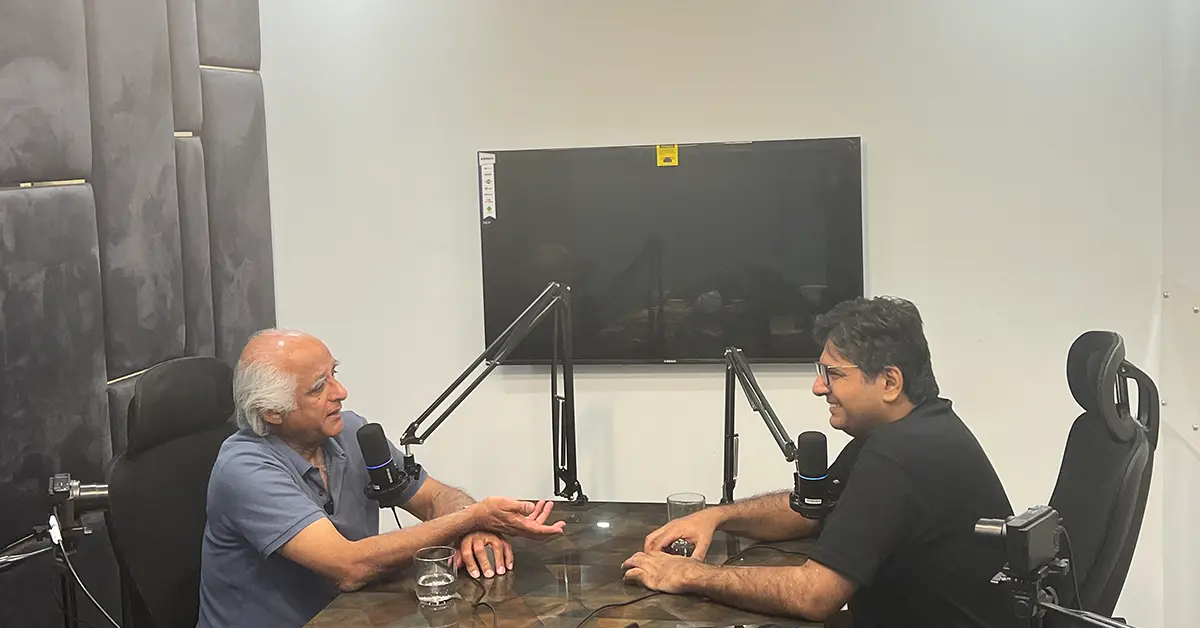Lahore has changed. Five years ago, if you weren’t in a corporate office, you probably weren’t working seriously. Some of the most successful people I know have never had a traditional office. Startups launch from laptops. Companies let people work remotely. Freelancers are making proper money without commuting anywhere.
But working from home? That’s its own headache.
So coworking spaces started popping up everywhere. Some are actually good. Others just stuck desks in a room and called it a business model.
I’ve been checking out different spaces around the city, primarily out of curiosity, and talked to thirty freelancers, small teams, and solo consultants, about where they work and why. The thing is, people had wildly different takes. Some folks loved Ignition’s straightforward setup. Others said they’d never leave WorkPod. Nobody was wrong; they just needed different things. Let me walk you through both. No corporate speak, just what you’ll actually experience at each place.
Ignition: Keeping It Simple
Ignition’s philosophy is clear when you walk in. They’re not trying to be fancy. They give you workspace basics at prices that won’t wreck your budget.
The main area has hot desks, basically, show up and sit wherever’s open. If you want the same spot every day, they’ve got dedicated desks for a bit more money. There’s event space in the back if you need to run a workshop or something, but you’ll have to book it in advance.
Pricing is their main selling point. They’re deliberately affordable because they’re targeting freelancers and solo folks who are overseeing expenses.
When This Setup Works Great
Quiet workspace away from family chaos. An internet that doesn’t cut out. A professional environment when he needs to focus. That’s really Ignition’s strength. If you need a workspace without complications, they deliver that.
Where You’ll Hit Walls
No childcare. No private rooms if you need to take confidential calls. No real networking setup beyond people happening to work in the same room.
WorkPod: When You Need More Than Just a Desk
So here’s where they come in with a completely different approach.
They didn’t just ask “what’s the cheapest workspace we can offer?” They asked, What stops professionals from doing their best work? Then they built solutions for those actual problems. It’s in Johar Town, right off Main Boulevard. Easy to find, easy to reach, easy to explain to clients who are visiting.
Where Convenience Meets Credibility
WorkPod’s location means you don’t have to navigate a complicated route through residential streets. Your clients can find it. Your team members from different areas have roughly equal commutes.
And they’ve got actual parking. This sounds boring until you’ve been late to a meeting because you spent twenty minutes hunting for a spot. Plus, your business address matters. Having a Johar Town address on your card versus a residential plot XYZ sends different signals to clients, whether we admit it or not.
Different Spaces for Different Work
Hot Desks
Same concept as anywhere, show up, pick a spot you like, get started. Works great if your schedule changes a lot or you’re testing whether coworking even suits you. You’re sitting near designers, developers, consultants, whoever. Sometimes you chat, sometimes collaborations happen, sometimes you just nod and keep working. It’s natural interaction without forced networking events.
Dedicated Desks
Some people need their routine. Same desk every morning. Leave your extra monitor there, your good keyboard, that mug your friend got you. It’s all waiting tomorrow. This matters more than it sounds. You walk in, sit down, and start working.
Private Offices
This is where things diverge significantly from basic coworking. Teams need privacy. You can’t discuss client strategy with everyone listening. You can’t talk about hiring decisions in the open. You need walls and a door sometimes.
Private offices accommodate 2 to 10 people. Everything’s included: furniture, internet, and professional setup. When you hire another person, you don’t have to scramble to find new space.
Meeting Rooms
Client meetings need proper infrastructure. Big screen for presentations. Video setup that actually works. Whiteboard. Comfortable chairs.
You book by the hour when needed. The room itself communicates professionalism before you start your pitch.
The Childcare Thing Nobody Talks About Enough
On-site daycare is a game-changer. For working parents, reliable childcare means more focus, fewer compromises, and the freedom to take on real opportunities without worrying about pickup times or long commutes across the city. It’s not just convenience; it’s what makes professional growth sustainable. Productivity and parenthood can finally coexist.
The Details That Make Work Sustainable
Gaming Zone
Before you roll your eyes, there’s actual science here. Your brain can’t focus intensely for eight straight hours. Scrolling Twitter between tasks doesn’t refresh you. Playing FIFA for fifteen minutes actually does.
They’ve got PlayStation, board games, and comfortable seating. You disconnect entirely from work for a bit and come back fresher. Sounds silly until you try it.
Prayer Rooms
If you’re observant, prayer times matter. Going somewhere else means disrupting your whole workflow. On-site prayer rooms mean you can handle religious obligations without leaving the building.
Decent Pantry
Coffee that doesn’t taste like burnt dirt. Tea that’s actually drinkable. Comfortable spots to take real breaks.
This is where you actually talk to other members casually, just natural conversations while making coffee. Those often lead somewhere interesting.
Technology That Lets You Stay in Flow
Internet That Works
Fast, reliable connection. Video calls don’t freeze. Big files upload quickly. Everything responds immediately. You focus on work, not troubleshooting your connection.
Backup Power
Load shedding still happens in Lahore. Backup systems mean you keep working regardless. Your deadline doesn’t care about power outages.
Printing When You Actually Need It
Most stuff is digital now, but sometimes you need to print contracts, proposals, and documents. Equipment is available without you having to buy or maintain it yourself.
Community That Functions Properly
Actual Networking Events
They run regular events, skill shares, topic discussions, and industry meetups. You learn things, you meet people, and opportunities emerge.
People Who Connect People
Community managers actually pay attention to who does what and make introductions. Need a graphic designer? They know the three working there. Looking for legal advice? They’ll connect you with the startup lawyer.
Space Designed for Interaction
The layout itself encourages connection. Lounges where people actually sit and chat. Shared tables for impromptu collaboration. Kitchen areas where conversations happen naturally.
Flexible Payment Options
Hourly Booking
Need a meeting room for a client presentation? Book it by the hour. Pay only for what you use.
Day Passes
Testing coworking? Does it suit you? Get a day pass, work a full day, experience everything, then decide.
Monthly Membership
Regular use gets better rates. Choose a hot desk, a dedicated desk, or a private office based on your needs. Month-to-month, so you can adjust if circumstances change.
How to Actually Decide
Forget the marketing. Here’s what matters.
Run Real Numbers
Don’t just compare membership costs. Calculate what you’re actually spending now.
Working from cafes? Add up those coffees and lunches over a month, and it’s probably shocking. Paying for childcare separately? Include that. Renting meeting rooms when needed? Count it. Time wasted on bad commutes? Your time has value, too.
Sometimes premium workspace actually costs less when you add everything up. Sometimes basic workspace perfectly matches basic needs.
Actually Visit Both Places
Reading about a workspace tells you almost nothing compared to spending time there.
Go during real working hours, not during a curated tour. Talk to actual members, not just staff. Work a whole day. See what the vibe actually feels like.
If you’ve got kids, visit the childcare facility. Meet the staff. Make sure it meets your standards; your child’s safety isn’t negotiable.
If you’re a team, try the private offices. Hold a real meeting there. See if the space actually supports focused work.
Why WorkPod Works for Most Serious Professionals
After talking to dozens of people and visiting both spaces multiple times, here’s my honest take: WorkPod makes more sense for most professionals building real businesses.
Everything in One Place
They put everything under one roof. One place, one membership, everything you need. This consolidation saves time, reduces stress, and usually saves money compared to piecing things together.
Room to Grow
Your workspace evolves without you having to relocate every six months and rebuild everything.
Professional Environment Matters
There’s something psychological about workspace quality. A professional environment encourages professional output. Working around other serious professionals raises your standards.
Meeting clients in a genuinely professional space affects how they perceive you. The environment itself communicates competence.
Conclusion
A good workspace doesn’t just give you a desk; it provides you with rhythm, flow, and focus. It’s the difference between showing up and actually moving forward.
Everything works together: the location, the systems, the design, the quiet, so you can spend your energy where it matters most.
It’s for people who take their work seriously but don’t want life to fall apart around it. Because when the space supports you, you create better jobs, better ideas, and a better version of yourself
FAQS
Why pay more for workspace when cheaper options exist?
You’re not paying for square footage. You’re paying for problems solved. If a comprehensive workspace includes childcare that lets you take projects you’d otherwise decline, it pays for itself. If meeting rooms help close clients, they’re worth it. If community leads to partnerships, that’s return on investment. Sometimes cheap is just cheap.
Can small teams afford proper workspace without enterprise budgets?
Yeah, absolutely. Private offices give you professional space without traditional lease headaches. No renovation costs, no long commitments, no dealing with utilities, no buying furniture. You scale space as money comes in, not based on optimistic forecasts.
How do I figure out real workspace costs?
Add everything up. Membership price, yeah. But also, your commute time is valued at what you actually earn per hour. Childcare if you’re paying separately. Meeting rooms you rent elsewhere. Cafes you’re working from. Parking fees. Lost productivity from inadequate setup. Then compare total real spending, not just the advertised price.
Does location genuinely matter that much?
Location matters more than people realize. Calculate completely, commute time, client accessibility, team coordination, and the neighborhood’s professional reputation. Premium locations often cost less when you factor in time saved, deals closed, and billable hours reclaimed from commuting.
What’s the difference between quality coworking and just expensive desk rental?
Quality coworking solves multiple challenges at once. Childcare for parents. Private space for confidential work. Meeting rooms for presentations. Community for networking. Professional address for registration. You’re paying for complete problem-solving, not just access to a chair.







